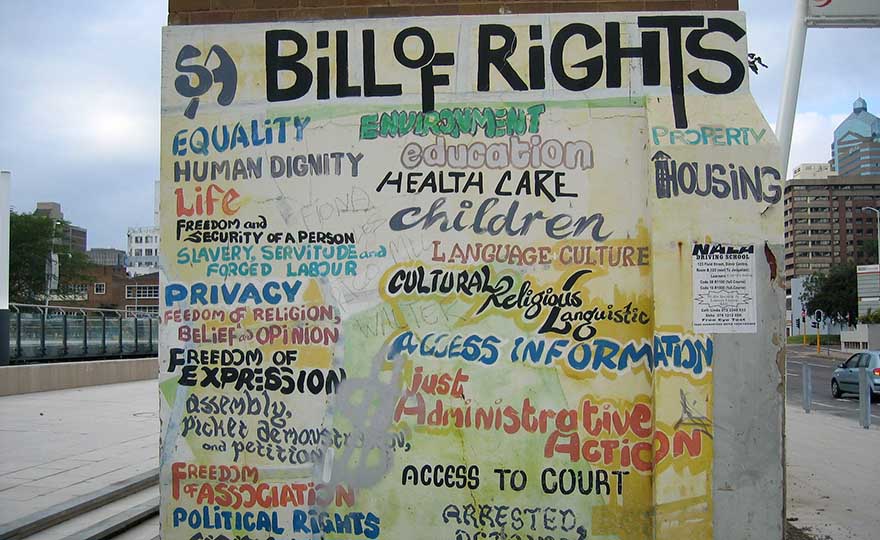Covid-19 and the Future of Transitional Justice – a webinar with Howard Varney

Bill of Rights on the wall of the remains of the old prison in Durban, South Africa. Credit: bistandsaktuelt (Flickr)
The Coronavirus pandemic has the potential to open the door to future conflict. Many governments have exploited the crisis to centralise political power and discard democratic checks and balances in order to further marginalise political opponents. They may be reluctant to relinquish such powers and measures.
With the pandemic resulting in rapidly shifting priorities, the focus on human rights and transitional justice is slipping down national and international agendas. However, practitioners in these fields still have a critical role to play in monitoring excesses, identifying potential causes of future conflict and pushing for guarantees of non-recurrence.
Watch the recorded webinar here:
This event may be photographed and/or filmed, due to our public service mission. Please inform us if you object to this.
